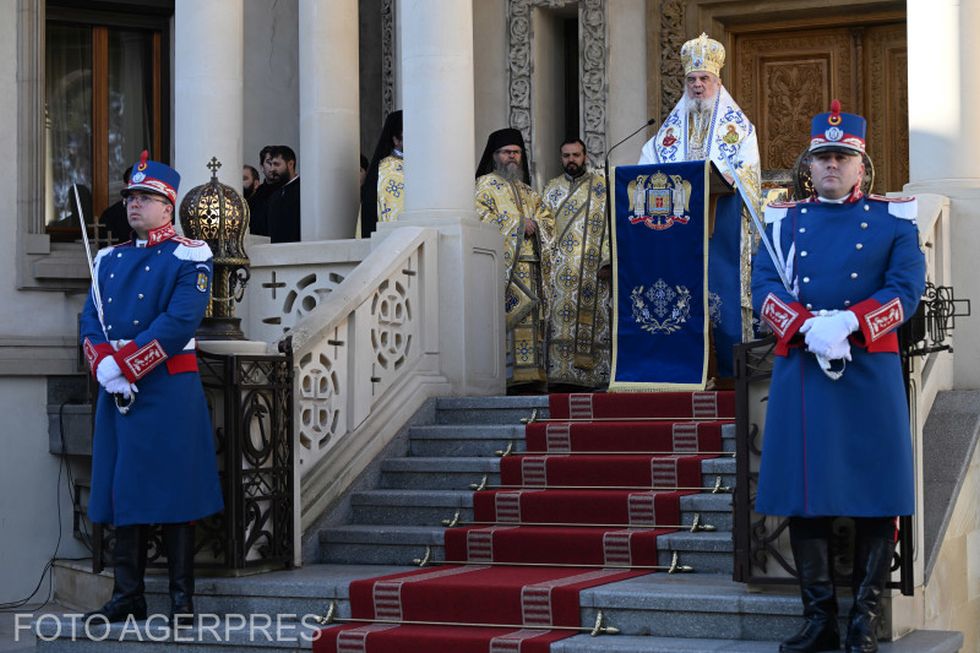The Constitution of Mavrocordatos
The Mavrocordatos were the first Phanariote family to rule in the Romanian Principalities

Steliu Lambru, 14.01.2019, 12:16
Their most well-known members were Nicholas and his son Constantine. Constantine Mavrocordatos was a reformist and the initiator of the first Constitution to be drafted in the Romanian world. In 1735, when he was ruler of Wallachia, he began a series of reforms influenced by the Austrian reforms in Oltenia, which Austria had annexed in 1718. He eliminated a number of indirect taxes and introduced a general tax that could be paid in four tranches. He gave more freedom to serfs, allowing them to move from one estate to another if they paid a certain fee.
In 1735, Constantine Mavrocordatos took part in the establishment of the first Masonic Lodge in the Moldavian capital Iasi. During his following reigns he abolished serfdom in Wallachia in 1746 and then in Moldavia in 1749.
The historian Georgeta Filiti has described the first part of the 18th century, when the Phanariotes were in power in these parts, as being influenced by the ideas of the French Enlightenment: “The French influence was exerted by people, newspaper subscriptions and books making their way here from the West, as well as all kinds of goods. Mercure de France magazine was one such example. In 1746, it published what could be described as the Constitution of Constantine Mavrocodatos. Whats interesting is that, long before the French Revolution, he raised the problem of social freedom. In other words, he abolished serfdom in Wallachia. However, peasants still bore the burden of no less than 43 different taxes and duties, but at least there was a concern in this regard. This was very important. These liberating ideas of social equality did not spring up on unknown ground.
Constantine Mavrocordatos was undoubtedly a refined intellectual as well as a skilled politician who was very much aware of the direction the world was taking in his day.
Historian Georgeta Filiti explains: “He read and studied enormously, had his finger on the pulse of Europe and saw where society was going. This is the duty of a politician, of a leader, a person responsible for the future of a social group, be it small or big. The Phanariote rulers of the Romanian Principalities, who were in fact Greek functionaries in the service of the Ottoman Empire, had several clear aims: the liberation of the Christians from under Turkish domination and the so-called Megali Idea, the goal of recreating Byzantium, of re-establishing a Greek Christian empire. And this could not be achieved sitting at home, but by acquiring information and taking action. The Phanariotes played an extraordinary role when it comes to the use of the sources of information. Plainly said, they had spies at all European courts. The issue that dominated these parts and would continue to do so for the next one hundred years was the so-called Oriental problem, namely the fight for power in the Lower Danube region. The Turks were very powerful, the Russians were fighting them, and there was also the Austrian empire not far away.
Constantine Mavrocordatos possessed an impressive library, which was housed at Vacaresti, the monastery founded by his father Nicholas. He thus came in contact with the writings of Montesquieu, Diderot, Voltaire and of other figures of the French Enlightenment.
Historian Georgeta Filiti: “We know of this indirectly, from what he wrote, what he did and how he behaved because he didnt keep a diary about what he read. The library in Vacaresti is memorable for its manuscripts. From the few existing testimonies of his contemporaries we know that he spent a lot of time there. Other indirect testimonies lead us to very clear conclusions: he organised village education and he divided the country into counties, with each county having its own leader. He also established the taxes and duties. No matter how harsh, the law was the law, otherwise there was lawlessness. Order was being established to a certain degree. He was of Greek origin but began to learn Romanian and those who spoke Greek to him hoping to win his goodwill lost their influence. He told the entourage he brought with him from Constantinople to learn the language of the country.
During the Russo-Turkish-Austrian war of 1736-1739, Constantine Mavrocordatos got the province of Oltenia back from the Austrians. 30 years later, in 1769, during another Russo-Turkish war, he was made prisoner in Galati and died at the age of 58 at the hands of a Russian soldier. He was buried in Iasi.






























